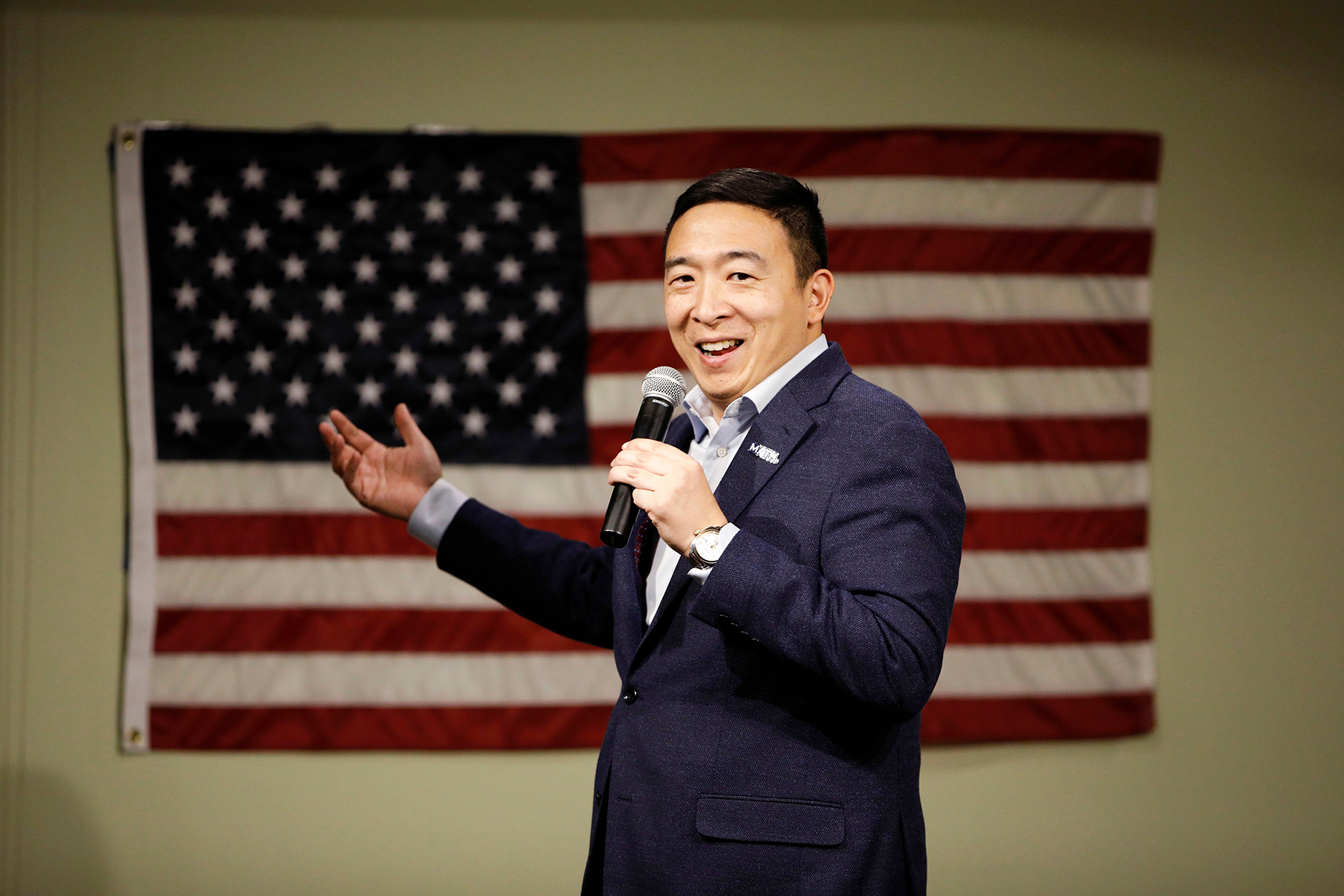As of this week we have the results from the Democratic primaries, and we have a surprise winner. I didn’t expect to say this, but tech entrepreneur Andrew Yang has run away with the 2020 Presidential election.
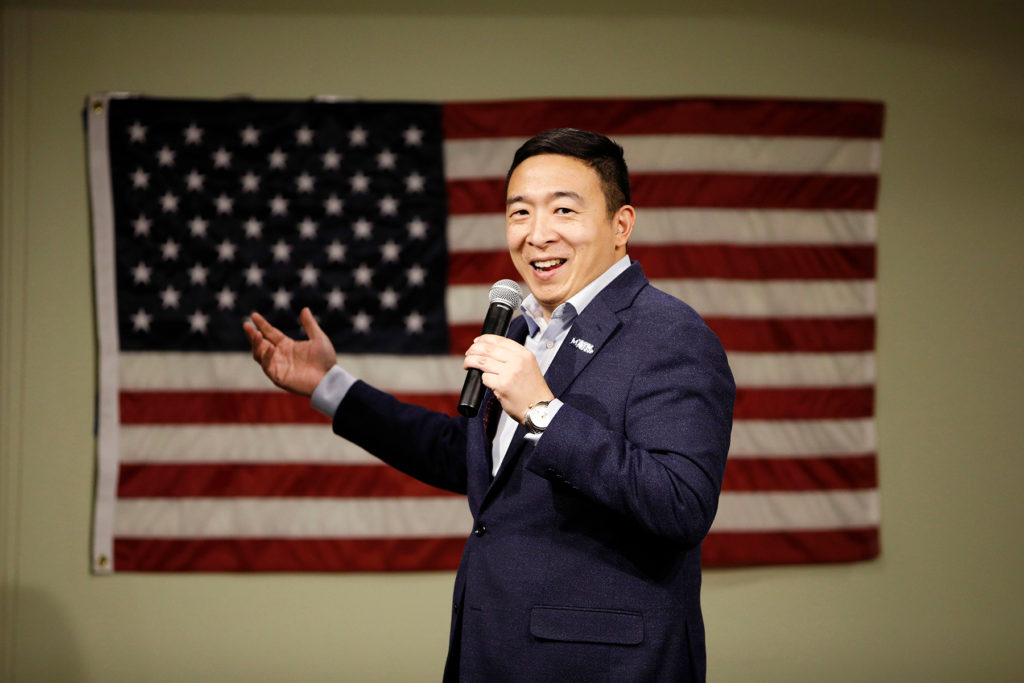
No, I don’t mean literally Yang becomes President next year, obviously. But his central, formerly kooky-sounding idea of Universal Basic Income (UBI) is about to become reality. With bi-partisan support. And more than that – I think it becomes permanent.
What the Trump administration and key Republicans Senators propose to pass in the next week or so – as a response to the COVID-19 crash – is an unconditional cash transfer to American adults. As of this writing, they are still debating the amounts and timing, but it all seems likely. Maybe $1,000 per adult on April 6 and May 18th, according to a Bloomberg news report.
This cash transfer represents a previously-untried-in-the-US solution to alleviating the effects of a recession. For what it’s worth, it feels to me like exactly the right thing to do right now. The traditional “lower interest rates and let it trickle down” is insufficiently targeted to the people for example who face imminent poverty because their bar, restaurant, retail store, theater, or gymnasium where they work is either forcibly closed, or effectively closed, until the virus stops passing around.
As Americans, we think we’re opposed to transfers like this. We tend to think in shorthand like “bootstraps” and “no work, no pay.” But just as there are no atheists in foxholes, there are fewer libertarians in a pandemic-induced recession. Nobody is to blame when their restaurant-employer shuts indefinitely, by order of the city. People want to work, but they can’t. The only humane response is a bit of cash to cushion the blow until normalcy returns.
So why do I think this one- or two-time cash transfer becomes permanent? For a bunch of virulogic, economic, and political reasons.
I’m not an infectious disease expert (although I am married to one!) but I can imagine scenarios where we do not have the “all clear” signal to return to public places 3 months from now. Which means severe economic pain among households continues 3 months from now.
So, now follow my train of thought. Let’s say the COVID lockdown and recession continues for not just 3 months but 6 months to 12 months. Restaurants, bars, theaters, gymnasiums, stadiums, concert halls, and retail stores have to remain basically empty, either by law or by prudent health practice, to prevent the continued spread of the virus. Every shuttered business represents people who can’t afford to pay rent, pay the mortgage, or buy groceries. The pesky thing about food and shelter is that we all have to pay for it every single month. The federal government is going to have to make another unconditional cash transfer 3 months from now.

And then, if the virus continues to circulate among the population, another month after that. Pretty soon we’re looking at a monthly, universal basic income.
Why will it become permanent? Let’s look at the example of Alaska. And then Social Security.
For Alaska residents, a basic income check known as the Alaska Permanent Fund Dividend – recently around $1,600 per year – sure is popular. Even though oil revenue has plummeted, and the state can’t necessarily afford it, Alaskan politicians would not dare eliminate the dividend. It turns out – and you’re going to have to just trust me on this one – people tend to like free money.
There was a moment in time, in the mid-1930s, when Social Security looked to some people like a radical Socialist idea. Now, only paleo-conservatives find the idea of Social Security to be un-American.
So I bet by month 6 of this recession – just before elections – that a majority of Americans will have swung around to deciding that a universal monthly basic income is a comfortable and necessary thing.
Perhaps the biggest whiplash is happening among political leaders.
How did the Republican Party suddenly become advocates for this unconditional cash transfer?
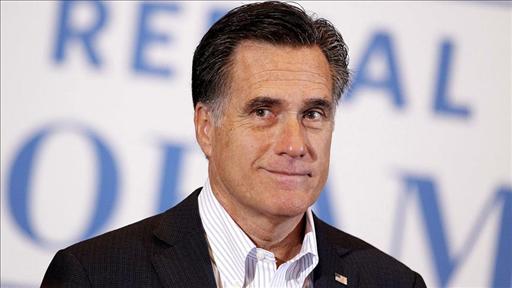
Trump undoubtedly has an instinct for what his key supporters want and need. A strong case could be made that the Rust-Belt swing state voters of Michigan, Pennsylvania, and Ohio who delivered Trump the electoral college victory in 2016 are eager for this type of economic lifeline. When you live in a manufacturing town, and manufacturing jobs are going overseas, a little monthly help goes a long way.
Trump – nominally a Republican – has an unorthodox approach to economic policy. Certainly he’s proved willing to reject the free-trade, open borders, global market approach of the Bushes and Romneys of his own party.
But then, Utah Senator Mitt Romney himself kicked off the cash transfer idea on the Republican side on March 16th by urging $1,000 be sent to every American adult.
Arkansas Senator Tom Cotton – a Republican with deep conservative bona fides – jumped in to support $1,000 payments for every American, introducing the idea that payments should be made monthly, as needed.
Embedded in Senator Cotton’s proposal, and his critique of existing measures, is the reason why conservatives might – and should – endorse cash transfers and UBI. Cotton said on Fox News that “we worry that the [already passed rescue] bill is setting up a new and complicated system relying on businesses giving paid sick leave and then getting a refundable tax credit that won’t move quickly enough and could give pressure on those businesses to lay workers off.”
To Cotton, and possibly other conservatives, unconditional cash transfers and the related idea of UBI have the huge advantage of simplicity. And simple means smaller government.
Charles Murray, a staunchly conservative intellectual, wrote in his book In Our Hands, A Plan To Replace The Welfare State that UBI represents a far preferable system to the patchwork of federal programs currently in place.
It does not take a massive government infrastructure to send money transfers. Traditional welfare programs for households like SNAP and EITC require giant bureaucracies. Small business tax credits are complicated, and slow moving. UBI is easier than housing subsidies or unemployment checks. Faster than rent or mortgage freezes. If you squint your ideas a bit, the idea of trusting people to use money as they personally choose, rather than nanny-stating them around food, housing, and employment status, is a deeply conservative, small-government idea.
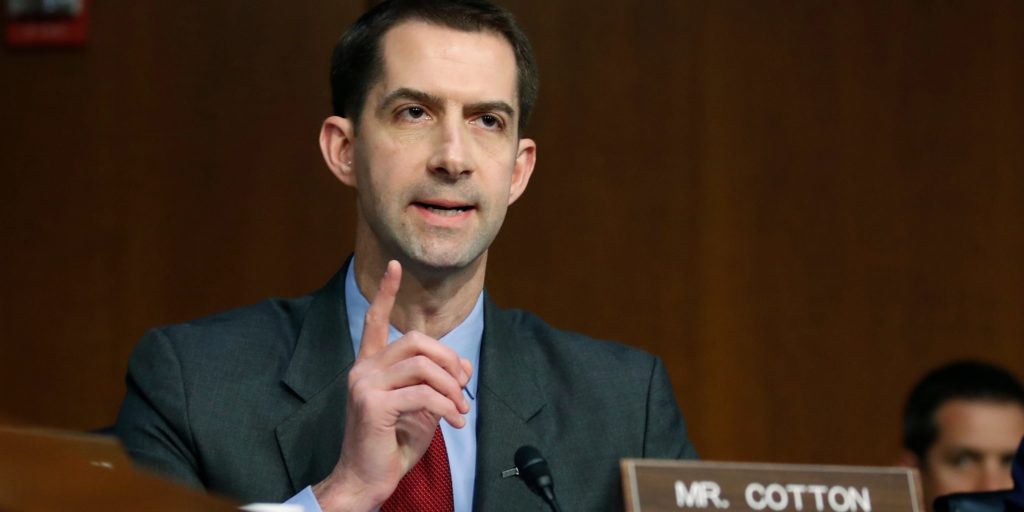
I’m just saying, when conservatives like Cotton, moderates like Romney, and unorthodox Republicans like Trump unite around an economic idea that feels pretty lefty, you have the makings of a permanent feature of American life.
I haven’t mentioned the Democrats yet. Senate Minority Leader Chuck Schumer has already argued that the one time cash transfer does not go far enough. “This is not a time for small thinking. A single $1,000 check would help someone pay their landlord in March. But what happens after that?” he said.
New York Congresswoman Alexandra Ocasio-Cortez has weighed in with support, but not if it comes at the expense of existing social welfare programs.
At the end of the day though, if given the chance to implement a permanent UBI, would Democrats support this idea? I don’t know, what do you think? Is the Pope Catholic? They are never going to allow Republicans to get to the left of them on this idea.
The final matchup between Vice President Joe Biden and Vermont Senator Bernie Sanders has left neither candidate with a viable economic plan. Biden, because he never had any forward-looking ideas except to replace Trump. And Sanders, because his forward-looking idea of “Medicare For All” has precisely zero chance of implementation over the next twenty years. So that leaves Yang as the ultimate winner of the Presidential race, even if he’s not the one who will occupy the Oval Office next year.
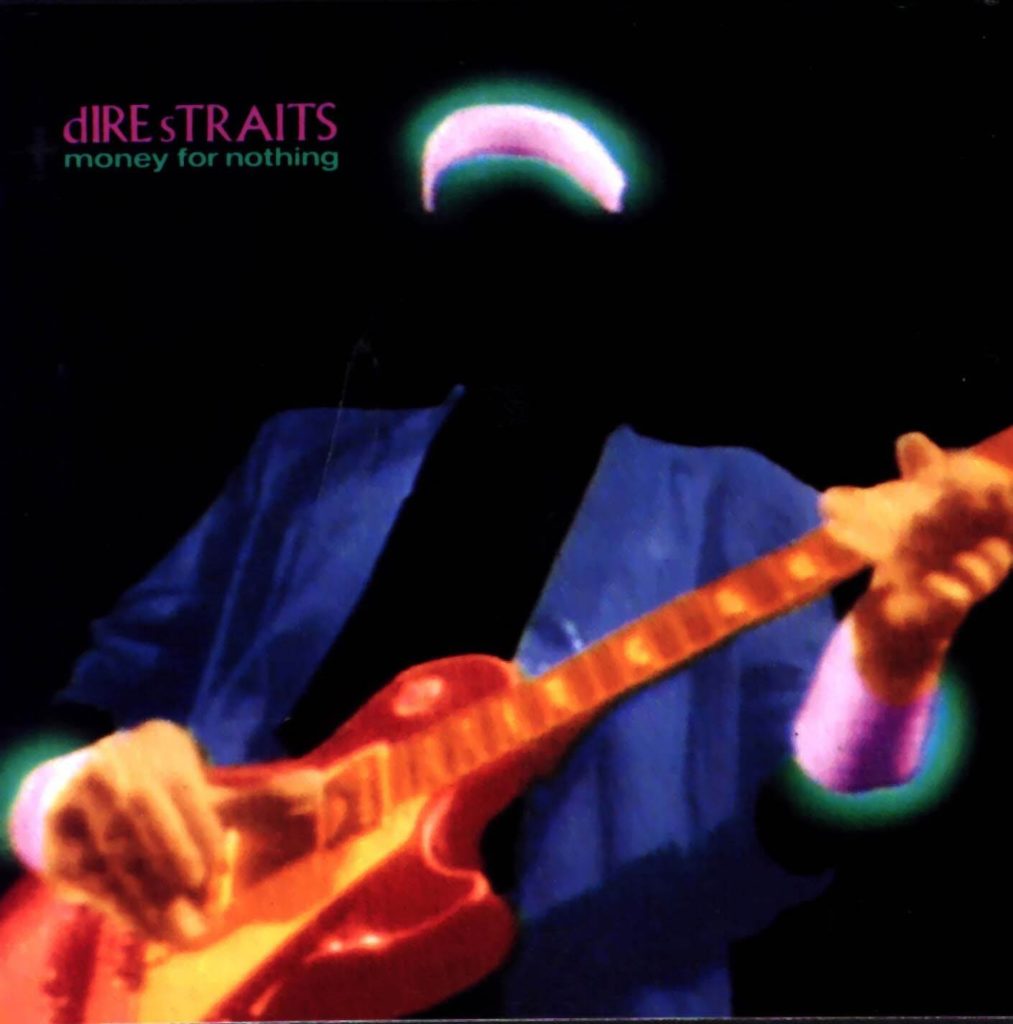
“Money for Nothing” as Dire Straits used to sing.
I bet nobody is as surprised as Yang that he won the war of ideas, far more quickly than he imagined. And further, I think he won this idea permanently. You read it here first. We’re getting UBI in the United States, starting this year, and we’re never going back.
A version of this post ran in the San Antonio Express News.
Please see related posts:
Cash is Better Than Good Intentions
Post read (935) times.

